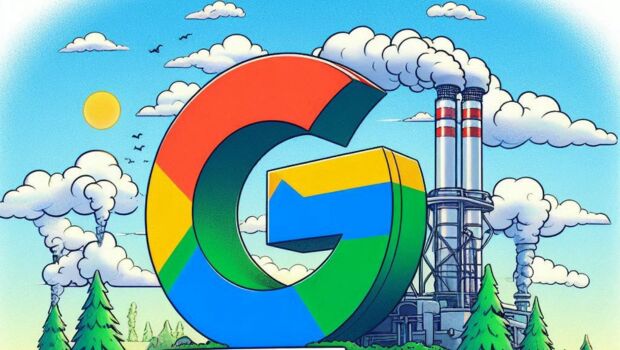Digest: Ad Industry Calls for Fossil Fuel Marketing Ban; Google Underestimates Carbon Emissions; AI Factchecking on X Sparks Conspiracy Concerns
by on 7th Jul 2025 in News

In today’s Digest, we discuss the UK ad industry calling for a fossil fuel marketing ban and Google found to be underestimating its carbon emissions. We also cover AI factchecking on X sparking conspiracy concerns, and UK marketers citing creator relationship management as a key scaling hurdle.
Sustainability Focus: Ad Industry Calls for Fossil Fuel Marketing Ban; Google Underestimates Carbon Emissions
Over 100 UK advertising and media organisations representing more than 1,000 brands have joined calls for a national ban on fossil fuel advertising and sponsorship. In a joint letter to the UK government, the group compares fossil fuel firms to tobacco companies, accusing them of using advertising to "greenwash their image and sell products that are harmful to human health."
The move comes ahead of a parliamentary debate triggered by a petition led by broadcaster and naturalist Chris Packham, which amassed over 110,000 signatures. The campaign is being coordinated by the nonprofits Clean Creatives, Creatives for Climate, and Purpose Disruptors, and includes support from prominent creative and media agencies across the UK.
The letter states that, "Fossil fuel companies are the cigarette companies of the 21st century. The call to action demands legislation restricting fossil fuel advertising, echoing regulatory frameworks already in place for tobacco marketing.
Google is also under renewed scrutiny over its environmental footprint, as a new report challenges the tech giant’s official carbon accounting and accuses it of significantly underreporting emissions. While Google has committed to reaching net-zero carbon emissions by 2030, its latest sustainability report reveals a 51% increase in emissions between 2019 and 2024, a rise largely attributed to the energy demands of AI and data centre growth. However, research by the Kairos Fellowship argues that the true increase is closer to 65%.
The report by Kairos Fellowship challenges Google’s official sustainability narrative, revealing that the company’s total emissions rose 1,515% between 2010 (the first year with publicly available emissions data) and 2024. The sharpest year-on-year increase occurred most recently, with emissions jumping 26% between 2023 and 2024.
The authors say the data used to calculate these figures was primarily sourced from the appendices of Google’s own sustainability reports. They note that many of the critical metrics particularly those relating to energy usage and emissions growth were not prominently featured in the main body of the documents.
AI Factchecking on X Sparks Conspiracy Concerns
X has come under fire for its decision to use AI chatbots to draft fact-checking notes on posts, a move critics warn could amplify misinformation. Former UK technology minister, Damian Collins said the company is “leaving it to bots to edit the news” after X revealed that it will now allow large language models to generate Community Notes previously written by users then reviewed and approved by the community.
Collins warned that the system is already vulnerable to abuse, and the introduction of AI-generated community notes could enable “the industrial manipulation of what people see and choose to trust” across a platform with an audience of roughly 600 million users.
X said the update would advance “the state of the art in improving information quality on the internet.” Keith Coleman, VP of product at X, added that AI-generated notes will only be published if deemed helpful by users from diverse viewpoints.
UK Marketers Cite Creator Relationship Management as Key Scaling Hurdle
UK marketers are significantly ramping up investment in creator marketing, while one in three cite relationship management at scale as the top barrier to growth, according to new research by creator marketing agency Billion Dollar Boy.
The report finds that 33% of UK marketers are now spending between £764k and £2.3m annually on creator-led campaigns. Over half (52%) say their creator marketing budgets exceed £765k. Marketers are also increasingly outsourcing campaign execution to specialists. Just 1% of those surveyed run influencer activity in-house, with the vast majority turning to dedicated creator marketing agencies to manage complexity and ensure creator-brand alignment.
The study highlights key pain points in the scaling process, with managing relationships at scale and ensuring creator preference for brand partnerships cited as the most pressing concern.
AIDisplayMarketingSustainability








Follow ExchangeWire